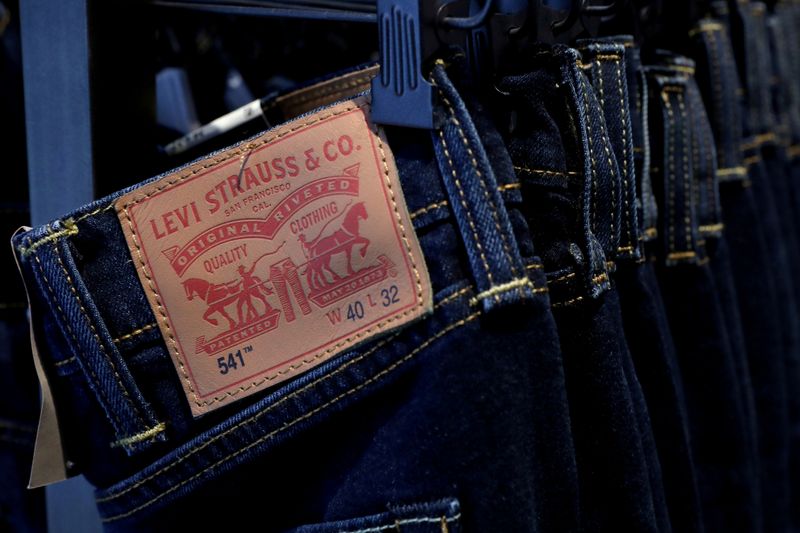BofA warns Fed risks policy mistake with early rate cuts
On Tuesday, JPMorgan analyst Matthew Boss upgraded Levi Strauss & Co. (NYSE:LEVI) stock from Neutral to Overweight, despite lowering the price target to $17 from $19. Boss cited the significant pullback in Levi's stock price over the past nine months as an opportunity for investors to engage with the company at an attractive valuation.
The upgrade comes after Levi's shares experienced a 50% decline compared to the S&P 500's 5% drop during the same period. Boss believes this presents a chance to invest in Levi's at approximately 5 times its forecasted fiscal year 2026 EBITDA. He highlighted the company's potential for a multi-year mid-teens or higher total return profile, which includes a current dividend yield of 3.9%.
Boss noted that under the leadership of CEO Gass, Levi's has seen consistent growth in global demand for four consecutive quarters, with a particularly strong appeal to the younger 18-30 year old demographic. These customers are transacting at higher average unit retails (AURs) with greater purchase frequency, contributing to the brand's momentum. The company's revenue grew 2.85% in the last twelve months to $6.36 billion, with analysts expecting continued profitability this year.
Further justifying the upgrade, Boss pointed to Levi's gross margin expansion of 370 basis points over the trailing twelve months, driven by a mix shift from wholesale to direct-to-consumer sales, product cost savings, and more full-price selling. Current gross margins stand at an impressive 60.04%, according to InvestingPro data. He also mentioned the company's exit from lower-margin segments like Denizen, European footwear, and Dockers, which has led to a structurally improved profitability profile and EBIT margin accretion. For deeper insights into LEVI's financial health and growth prospects, investors can access the comprehensive Pro Research Report, available exclusively to InvestingPro subscribers.
Additionally, Boss emphasized Levi's diversified supply chain and reduced reliance on China for sourcing, with only 1% of its U.S. sourcing mix coming from China. This diversification strategy is seen as a way to mitigate the impact of tariffs, which Boss described as "negligible" based on the company's experience in 2018 and 2019. The company maintains a healthy current ratio of 1.42 and strong cash flows that sufficiently cover interest payments, demonstrating its operational resilience.
In other recent news, Levi Strauss & Co. reported strong first-quarter results for fiscal year 2025, with earnings per share (EPS) of $0.38, significantly exceeding the forecasted $0.28. The company achieved revenue of $1.53 billion, slightly below projections, but still marking a 9% year-over-year increase. This growth was driven by a 12% rise in direct-to-consumer sales, which now constitute 52% of total revenues, and a record gross margin of 62.1%. Stifel analysts adjusted their price target for Levi Strauss shares to $20 from $25 while maintaining a Buy rating, citing concerns about potential tariff impacts despite the company's robust financial performance.
Levi Strauss's diverse global revenue and supply chain, which includes sourcing from 20 different countries, were highlighted as structural advantages in mitigating tariff effects. However, Stifel noted that the company might face a high-single-digit percentage decrease in 2026 earnings if tariffs are enacted, with a more significant impact if consumer demand declines. The company reaffirmed its full-year outlook and expects organic net revenue growth of 3.5% to 4.5% in the second quarter, with a slight increase in gross margin. Levi Strauss continues to focus on brand-building initiatives and expanding its direct-to-consumer channels, despite the dynamic macroeconomic environment and potential challenges from tariffs.
This article was generated with the support of AI and reviewed by an editor. For more information see our T&C.
